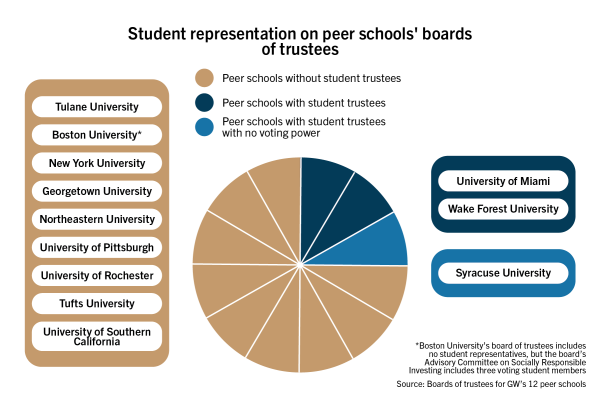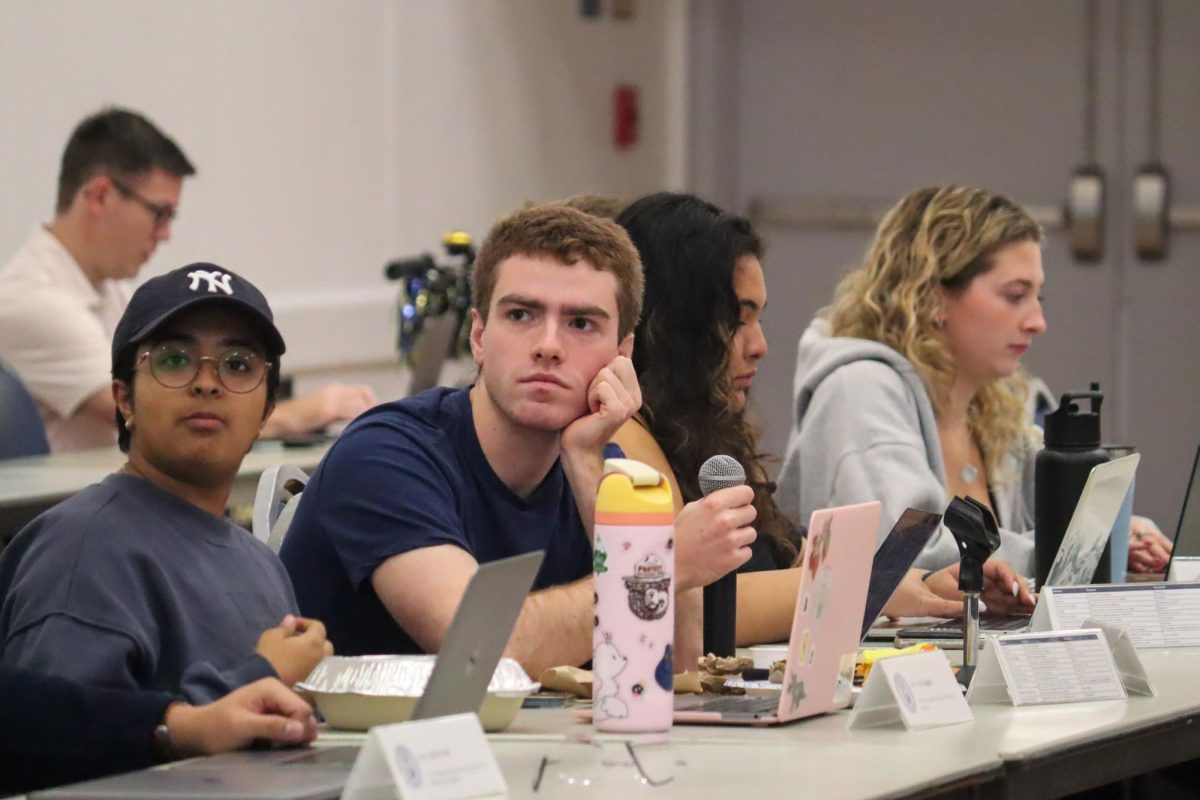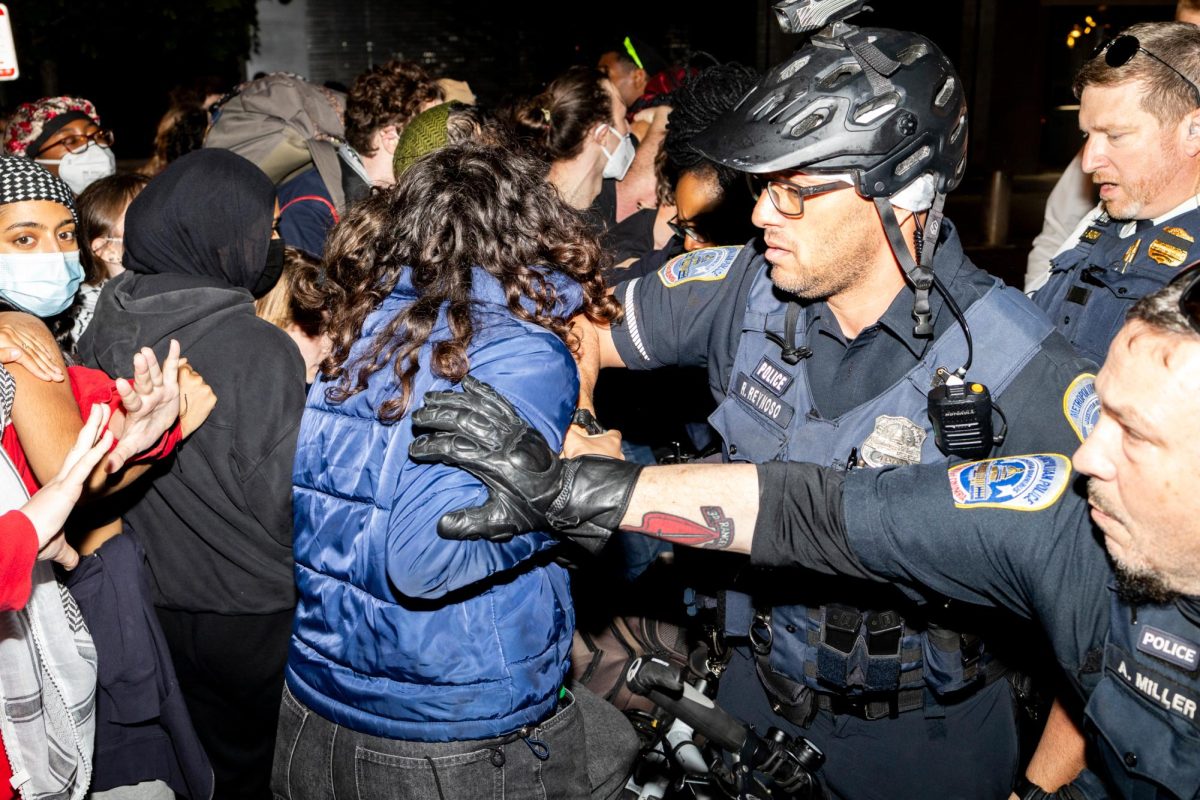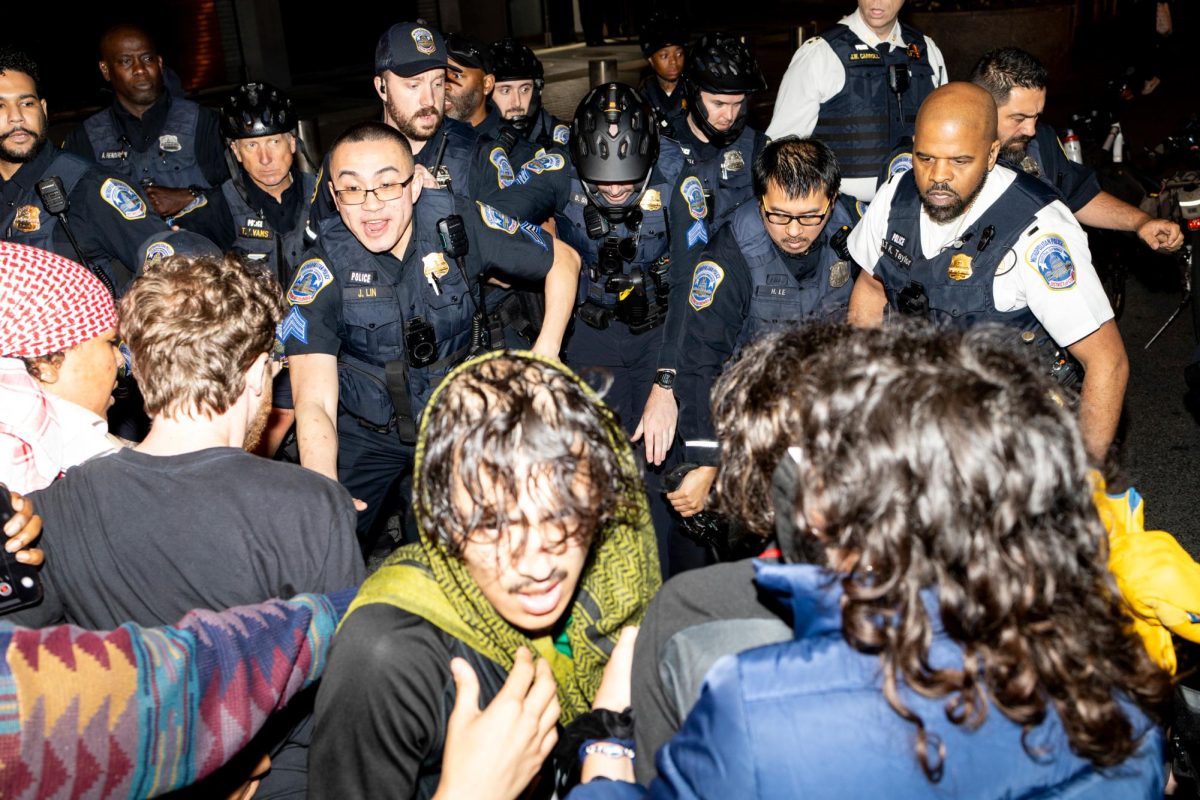The Student Association is set to vote on a resolution that would call for adding voting students to the Board of Trustees on Monday.
If approved by the SA Senate, the Student Empowerment Act will request the Board add the SA president and vice president as full voting members and grant them access to meetings and all committee sessions. The Board consists of 22 trustees — 18 of whom are GW alumni — who oversee University decisions and hold full body meetings three times a year.
As the highest form of government at GW, the Board has made pivotal decisions like arming the GW Police Department and loaning money to the Medical Faculty Associates.
Students have long demanded the Board add student trustees. Students in 2005 called for the establishment of a voting student trustee position and requested that Board meetings be open to the student body, but former University President Stephen Joel Trachtenberg and former Board Chair Charles Manatt spoke out against the addition of a student trustee because it would present a conflict of interest.
In 2016, trustees created a task force to consider adding a student member to the Board and former SA President Erika Feinman campaigned on adding student representation simultaneously. A year later, the task force decided they would not change internal rules to add a voting student but decided to expand student leaders’ roles at meetings and in committees and task forces.

SA Sen. Ethan Fitzgerald (CCAS-U), who sponsored the Student Empowerment Act, said he created the initiative because he heard through conversations with students that they have felt Board decisions don’t incorporate enough of their perspective.
“As young people and as people that are attending this University actively, I think that would provide a valuable perspective to those on the Board of Trustees and act as a compliment,” Fitzgerald said.
The resolution states that placing students on the Board would bring GW in line with institutions that have implemented similar student representation, like Cornell, Richmond and Syracuse universities. Fitzgerald said he found that most schools don’t have voting student trustees while researching for the resolution, but GW can be a pioneer of the initiative and inspire other schools to incorporate student voices in its highest form of decision making.
“This is something that could show that GW is leading on this, giving students more representation, listening to student voices and hopefully that can have influences to other universities,” Fitzgerald said.
Of the University’s 12 peer schools, three — the University of Miami and Syracuse and Wake Forest universities — have a form of student representation on the board, but only Wake Forest and the University of Miami give student trustees voting power. While Boston University does not have students on their board, the Board’s Advisory Committee on Socially Responsible Investing has three voting student representatives.

In 2018, New York University’s student government passed a similar resolution to the GW SA’s to request that NYU’s Board of Trustees include student and faculty trustees to improve dialogue about the community’s concerns, but the bill ultimately was vetoed by the school’s board. In the NYU board’s response, they outlined nine points on how they were going to improve engagement between trustees, faculty and students.
SA President Arielle Geismar — who as president gives a report at Board meetings and is a nonvoting member of the Academic Affairs Committee — said she supports the initiative because student voices are needed in all positions of power at GW. She said she has heard that students approve of her advocacy to the Board regarding student disapproval toward the Board’s decision to arm GW Police Department officers in April.
She said the Board has continued to move forward with the arming, but shortly after she spoke at the meeting, administrators released a more detailed timeline of the arming.
“That, for me, was a really big indicator that my voice on the Board really mattered and was helpful,” Geismar said.
Daniel Bromberg — a student at Cornell University and a voting member of Cornell’s Board of Trustees — said GW would benefit from a student trustee because of its urban location, since part of the GW experience comes from living and engaging in the city’s community. He said the University can’t take the pulse on what’s happening at GW without having people who live and regularly interact in the community on the Board.
At least eight of GW’s 22 trustees live outside the D.C., Maryland and Virginia region, according to trustees’ LinkedIns. University President Ellen Granberg, an ex-officio voting member of the Board, is the only trustee who resides on GW’s campus.
Bromberg said the Board should add student trustees while they have the chance to do it themselves before being left with no other choice. He said Cornell added student trustees in the late 1960s after the Willard Straight takeover, when members of the Afro-American Society occupied a Cornell building to protest racism on campus. He said a standoff ensued between white and Black students until it ceased 36 hours later following negotiations with Cornell officials.
In the wake of the takeover, Cornell implemented changes almost immediately, including adding students and faculty to the Board in an effort to harvest student input on University matters.
“I would tell the Board, ‘You’re going to have a student trustee eventually, it’s just what circumstances you want for that,’” Bromberg said. “Do you want tension on campus to force you to have a student trustee, or do you want to accept the benefits and work with students to make it happen?”
Jehane Djedjro, a student trustee at American University who does not have voting power, said student government leaders have more power to create policy that is enacted quickly on campus, while board members’ advocacy is more long term. She said the AU board oversees large issues like budgets and curricula that are rarely implemented in a short period and may only be put into action until a year or two down the line.
“In terms of advocacy, I’m not necessarily going out there and being able to really advocate in a way that an undergraduate student government president would be able to,” Djedjro said. “They have a little bit more power in terms of what actually gets done on campus.”
William Treloar — who serves as Syracuse University’s student association president and the default nonvoting undergraduate representative to Syracuse’s board — said he supports the initiative and will always advocate for including other voices of student representation, other than just the SA president. He said Syracuse has four nonvoting student representatives on the board including himself, a second undergraduate representative who is elected by Syracuse’s student assembly and a law school and graduate student representative.
“Having a secondary student representative who’s bringing in a new perspective and is bringing in a different perspective, who is elected by our student assembly, really, really helps out for expanding what the board report can be and expanding what student advocacy can look like to the Board of Trustees,” Treloar said.





